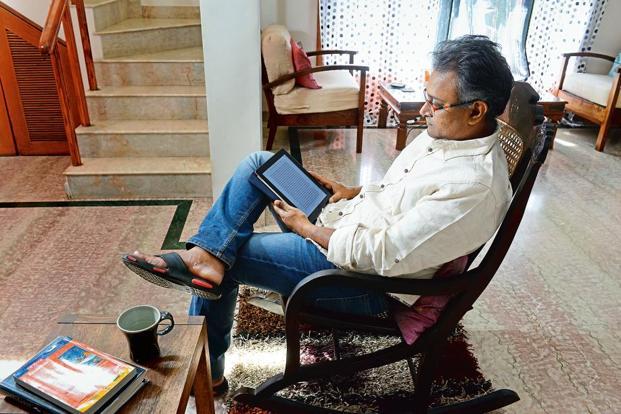Share your book, read an unlimited number of them or just pay for one chapter. E-book publishing is becoming flexible in a bid to suit individual needs
In 2015, Ramakrishnan Krishnan, an event consultant for indie music bands based in Bengaluru, read 53 books, 45 of them read digitally. It was a dramatic difference from the way he used to read just a couple of years ago. “I’m usually in various stages of three-four books at any given time, so carrying all my collection on my iPad 2 is quite convenient,” says the 45-year-old, who uses Kindle and the iBooks app for books and comiXology for comics and graphic novels. As a reader, he would not opt for a subscription-based model for reading and would like publishers to start creating e-books that are immersive and interactive.
On the other hand, Vatsala Bisen, a 33-year-old copywriter based in Mumbai, would love a social library-based app. “I want a reading app to have a personality, tell me what to read next, let me show off my personal digital library like I do at home, connect to people who are readers, look at what others have in their digital library, and, if possible at a nominal fee, read a book from someone else’s library too,” she says. Social connections while reading are important for Bisen, who reads on her MotoX rather than Kindle because she can browse and talk to friends on WhatsApp while she reads and manages her baby.
Each reader has his or her own style of reading and preferences, and publishers and authors are fast recognizing this. “Digital publishing can offer a lot of flexibility, of not only changing the experience of reading itself but targeting specific requirements that a reader has, be it bigger font size or backlighting,” says Jaya Bhattacharji Rose, an international publishing consultant who has been associated with the Indian publishing industry for 20 years. “India has a lot of markets within one market, so no single digital strategy is going to work.”
Pay by chapter
Aiming at readers who don’t want to buy the whole book owing to money or time constraints, Dailyhunt (Dailyhunt.in ), a news and e-books mobile application, is trying to see if you would buy a chapter of the book. “The idea works similar to an EMI. The customer has the option of buying the whole book at the store price or buying individual chapters at a marginal premium for as little as Rs.5 per chapter,” says Virendra Gupta, founder and chief executive officer (CEO), Dailyhunt.
Gupta has tried this with magazines, by letting readers pay by the article instead of buying the whole magazine, and the response has been good. In November, Dailyhunt launched a pilot of pay-per-chapter with Westland Books, starting with author Amish’s successful Shiva trilogy. Currently, Dailyhunt offers 100,000 books across 10 languages. By the end of January, Gupta says they will be able to offer the pay-per-chapter option for more than 6,000 books.
“The content for mobile needs to be simple, bite-sized and easy to consume on the phone,” says Rohit Kumar, founder and CEO of Chapter Apps (Chapterapps.net ), a start-up in beta which is building a mobile platform for textbooks to cater to college students. “Students buy books today even though they read only two-three chapters in it. In our app, they would be able to pay for the chapters they want to read.”
Mobile only, please
Like Dailyhunt and ChapterApps, the focus of another forthcoming publishing house, Juggernaut Books (Juggernaut.in ) is mobile. The mobile publishing house, which was formally launched in September, is working on iOS, Android and desktop apps that will be released by February. They plan to use the pay-to-download model…
read the complete article at livemint.com


